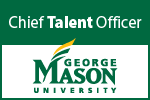ATD Blog
Learners and Sense of Belonging
Thu Nov 17 2022

Organizations are increasingly focused on creating cultures defined by psychological safety and a sense of belonging to maximize opportunities and create an environment that helps people be their best selves. However, we have found that the organizational focus on structural change from above, while an important step to meet immediate diversity and equity goals, also needs to address interventions at the individual level to create a truly transformative culture of trust and belonging. In our courses at the George Mason University School of Business, we take a learner-focused approach based on the internal work needed to challenge the status quo.
As faculty members in the School of Business’s Foundations Area, we teach courses that prepare students to examine the historical and ethical contexts of business while preparing them to engage with the globalized workforce. As educators involved in diversity, equity, inclusion, and belonging discourse and curricular revisions, we are keenly aware of the need for our students to question existing structural inequalities and injustices and for our students to have the psychological safety necessary to explore their identities in relation to these systems.
While the work we do is primarily in higher education classrooms, this approach is useful for any organization. To better illustrate our approach for managers, we divide it into two main strands, each corresponding to paired principles: “belonging and inclusivity” and “trust and accountability.”
Belonging and Inclusivity
As guides in this ongoing process, our goal is to lay the groundwork for a culture of inclusivity and belonging that invites everyone to take ownership of their lived experiences and values. To facilitate these brave conversations, we choose materials that reflect a range of races, ethnicities, and other perspectives in systematic ways that avoid token marginalized perspectives. Instead, inclusive course materials place multiple perspectives at the center and are contextualized and integrated with nuance.
When using dominant perspective texts in our courses, we encourage transparency that questions the lack of alternative views and invites critique. For us, this also includes curricular design at the structural level to ensure that language in course syllabi, assignment directions, and grading rubrics is inclusive and transparent. These same intentional decisions can contribute to a stronger sense of belonging in other organizations.
Trust and Accountability
Our goal is to empower learners to become leaders who can serve as change agents. We design courses that provide students with the tools to effectively challenge the status quo and create community based on trust and accountability.
This requires all parties to undergo often painful and courageous reexamination of social identities and to acknowledge our places in the power structures that define current systems, while also allowing space for each participant to share their findings along the way. These integrated processes allow for vulnerability, which is essential for building trust. This starts with establishing community norms to prepare for hard conversations that require careful listening, open perspectives, honest narrative, and respectful debate.
Through proactive classroom discussion and carefully designed assignments, we help students do the important and challenging work of exploring their personal values and connecting them to their lived experiences and future work environments with a focus on equity and inclusivity. We ask students to consider where they fit within structures or systems and to respectfully challenge those systems and examine solutions.
A Sea Change in Leadership
Our goal with this learner-focused approach is to create community that starts in the classroom and will hopefully transfer to the workforce. This is challenging work and requires collective determination to choose and learn what it takes to implement the long-term and systematic changes that will allow everyone to be their best selves. The tools that students gain from this approach are essential for tomorrow’s workforce as inclusivity and belonging, as well as trust and accountability, increasingly become core tenets of organizational leadership.
You've Reached ATD Member-only Content
Become an ATD member to continue
Already a member?Sign In

